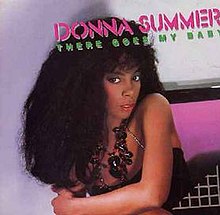Bertrand Russell Berns, also known as Bert Russell and (occasionally) Russell Byrd, was an American songwriter and record producer of the 1960s. His songwriting credits include "Twist and Shout", "Piece of My Heart", "Here Comes the Night", "Hang on Sloopy", "Cry to Me" and "Everybody Needs Somebody to Love", and his productions include "Baby, Please Don't Go", "Brown Eyed Girl" and "Under the Boardwalk".

Benjamin Earl King was an American soul and R&B singer and record producer. He rose to prominence as one of the principal lead singers of the R&B vocal group the Drifters, notably singing the lead vocals on three of their biggest hit singles "There Goes My Baby", "This Magic Moment", and "Save the Last Dance for Me".

"Stand by Me" is a song originally performed in 1961 by American singer-songwriter Ben E. King and written by him, along with Jerry Leiber and Mike Stoller, who together used the pseudonym Elmo Glick. According to King, the title is derived from, and was inspired by, a spiritual written by Sam Cooke and J. W. Alexander called "Stand by Me Father", recorded by the Soul Stirrers with Johnnie Taylor singing lead.

"Hound Dog" is a twelve-bar blues song written by Jerry Leiber and Mike Stoller. Recorded originally by Big Mama Thornton on August 13, 1952, in Los Angeles and released by Peacock Records in late February 1953, "Hound Dog" was Thornton's only hit record, selling over 500,000 copies, spending 14 weeks in the R&B charts, including seven weeks at number one. Thornton's recording of "Hound Dog" is listed as one of the Rock and Roll Hall of Fame's "500 Songs That Shaped Rock and Roll", ranked at 318 in the 2021 iteration of Rolling Stone's 500 Greatest Songs of All Time and was inducted into the Grammy Hall of Fame in February 2013.

"Jailhouse Rock" is a rock and roll song recorded by American singer Elvis Presley for the film of the same name. It was written by Jerry Leiber and Mike Stoller. RCA Victor released the song on a 45 rpm single on September 24, 1957, as the first single from the film's soundtrack EP. It reached the top of the charts in the U.S. and the top 10 in several other countries. The song has been recognized by the Grammy Hall of Fame, the American Film Institute, and others.

The Rolling Stones, Now! is the third American studio album by English rock band The Rolling Stones, released in March 1965 by their initial American distributor, London Records. Although it contains two previously unissued songs and an alternative version, the album mostly consists of songs released earlier in the United Kingdom, as well as the group's recent single in the United States, "Heart of Stone" backed with "What a Shame". Mick Jagger and Keith Richards wrote four of the songs on the album, with the balance composed by American rhythm and blues and rock and roll artists.
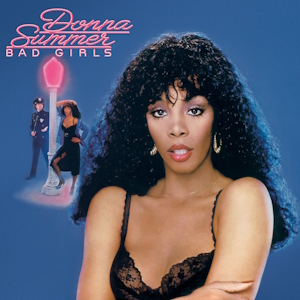
Bad Girls is the seventh studio album by American singer-songwriter Donna Summer. It was released on April 25, 1979 by Casablanca Records. Originally issued as a double album, Bad Girls became the best-selling and most critically acclaimed album of Summer's career. It was also her final studio album for Casablanca Records. In 2003, Universal Music re-issued Bad Girls as a digitally remastered and expanded deluxe edition.
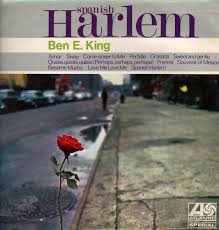
"Spanish Harlem" is a song recorded by Ben E. King in 1960 for Atco Records. It was written by Jerry Leiber and Phil Spector and produced by Jerry Leiber and Mike Stoller. "Spanish Harlem" was King's first hit away from The Drifters, peaking at number 15 on Billboard's rhythm and blues and number 10 in pop music chart.

Killer is the fourth studio album by American rock band Alice Cooper, released in November 1971 by Warner Bros. Records. The album peaked at No. 21 on the Billboard 200 album chart, and the two singles "Under My Wheels" and "Be My Lover" made the Billboard Hot 100 chart.

"The Tracks of My Tears" is a song written by Smokey Robinson, Pete Moore, and Marv Tarplin. It is a multiple award-winning 1965 hit R&B song originally recorded by their group, The Miracles, on Motown's Tamla label. The Miracles' million-selling original version has been inducted into The Grammy Hall of Fame, has been ranked by the Recording Industry Association of America and The National Endowment for the Arts at No. 127 in its list of the "Songs of the Century" – the 365 Greatest Songs of the 20th Century, and has been selected by Rolling Stone as No. 50 on its list of "The 500 Greatest Songs of All Time", among many other awards. In 2021, Rolling Stone ranked the Miracles' original recording of "The Tracks of My Tears" as "The Greatest Motown Song of All Time".
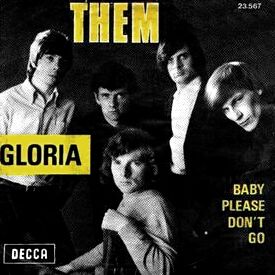
"Gloria" is a rock song written by Northern Irish singer-songwriter Van Morrison, and originally recorded by Morrison's band Them in 1964. It was released as the B-side of "Baby, Please Don't Go". The song became a garage rock staple and a part of many rock bands' repertoires.
"Chapel of Love" is a song written by Jeff Barry, Ellie Greenwich and Phil Spector, and made famous by The Dixie Cups in 1964, spending three weeks at number one on the Billboard Hot 100. The song tells of the happiness and excitement the narrator feels on her wedding day, for she and her love are going to the "chapel of love", and "[they'll] never be lonely anymore." Many other artists have recorded the song.
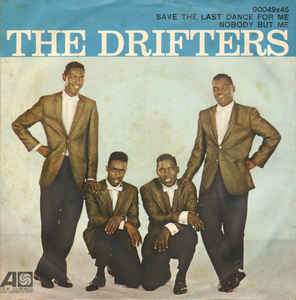
"Save the Last Dance for Me" is a song written by Doc Pomus and Mort Shuman, first recorded in 1960 by American musical group the Drifters with Ben E. King on lead vocals. It has since been covered by several artists, including Dalida, the DeFranco Family, Emmylou Harris, Dolly Parton, and Michael Bublé.

"Hot Stuff" is a song by Pete Bellotte, Harold Faltermeyer, and Keith Forsey released as the lead single by American singer Donna Summer on her seventh studio album Bad Girls, produced by English producer Pete Bellotte and Italian producer Giorgio Moroder in 1979 through Casablanca Records. Up to that point, Summer had mainly been associated with disco songs but this song also showed a significant rock direction, including a guitar solo by ex-Doobie Brother and Steely Dan guitarist Jeff "Skunk" Baxter. It is the second of four songs by Summer to reach number one on the Billboard Hot 100.

"Anybody Seen My Baby?" is a song by English rock band the Rolling Stones, released as the first single from their 21st British and 23rd American studio album, Bridges to Babylon (1997). It was written by band vocalist Mick Jagger and guitarist Keith Richards, and writing credits were added for k.d. lang and Ben Mink due to the similarities the chorus possesses with lang's 1992 hit "Constant Craving".
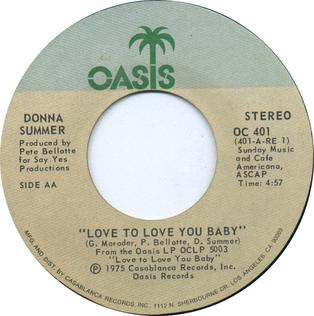
"Love to Love You Baby" is a song by American singer Donna Summer from her second studio album, Love to Love You Baby (1975). Produced by Pete Bellotte, and written by Italian musician Giorgio Moroder, Summer, and Bellotte, the song was first released as a single in the Netherlands in June 1975 as "Love to Love You" and then released worldwide in November 1975 as "Love to Love You Baby". It became one of the first disco hits to be released in an extended form.
"Charlie Brown" is a popular Jerry Leiber and Mike Stoller song that was a top-ten hit for the Coasters in the spring of 1959. It went to No. 2 on the Billboard Hot 100 singles chart, while "Venus" by Frankie Avalon was at No. 1. It did reach No. 1 in Canada. It was the first of three top-ten hits for the Coasters that year. It is best known for the phrase, "Why's everybody always pickin' on me?"

"Love Potion No. 9" is a song written in 1959 by Jerry Leiber and Mike Stoller. It was originally performed by the Clovers, who took it to No.23 on the US as well as R&B charts that year. It reached #20 in Canada.

Alvin "Shine" Robinson, sometimes credited as Al Robinson, was an American rhythm and blues singer, guitarist, and songwriter, based in New Orleans. His recording of "Something You Got" reached the Billboard Hot 100 in 1964.
"We Paid" is a song by American rappers Lil Baby and 42 Dugg. It was released as part of the deluxe edition of Lil Baby's second studio album My Turn, on May 1, 2020. A video was released a week later, on May 6. "We Paid" is a braggadocious song about the rappers' wealth and come-ups. Regarded as a standout cut from My Turn, the song received rave reviews from critics, with particular praise for 42 Dugg. On the chart dated July 11, 2020, the song became 42 Dugg's first top 10 entry on the Billboard Hot 100, peaking at number 10.

